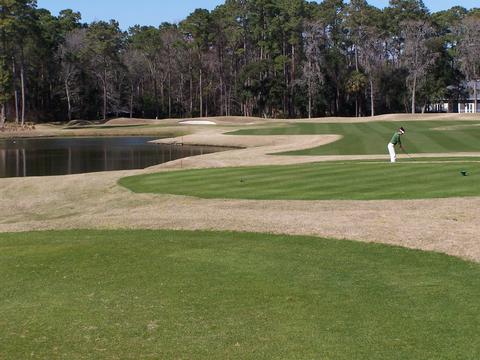
The more flexible people are about their criteria for a home on the course, the more choices open up to them, such as The Landings, in Savannah, GA, a place that, suprisingly, is mostly hurricane proof.
Most people contemplating a full-time (year-round) move to a golf community in the south seem to have only one non-negotiable criterion -- a climate that permits play every month of the year. Even a mere 30 miles from Ashevile, NC, the quintessential "mountain" city east of the Mississippi, the golf courses are open year round (Champion Hills and Etowah come to mind). New communities in the mountainous Lake Lure area of North Carolina are even touting thermal idiosyncrasies that keep their locations 10 degrees (F) warmer in the winter than in nearby Asheville.
After year round golf, though, the criteria for couples tends to vary in emphasis. One couple with whom I am working currently has what I consider a flexible set of criteria and, for that reason, I will be able to propose to them a wide range of communities to consider. Here is what they are looking for:
- Coastal or lake setting
- No cold winters (two seasons fine)
- No hurricanes
- Close to good medical facilities
- 20 minutes to mall shopping, 10 minutes for groceries
- 45 minutes or less to a commercial airport
- Access to restaurants more important than nearby theaters or university
- Boating, fitness center, indoor pool top choices for amenities
- Planned community with private golf, or a nice home near a private club
- Roughly 3,500 square foot home
- Water view first choice, golf view second
- Annual club dues $8,000 or less
- Any course designer but Pete Dye.
I will deliver a list of specific ideas to them in the next few days -- maybe even one with an atypical Pete Dye course -- but because these clients are not inflexible about most things, they will have many communities to choose among, including some in the Charleston, Chapel Hill, Aiken, Charlotte and Savannah areas. And because their flexibility opens up many possibilities, they will be able to take best advantage of the many bargain prices we
The willingness of people to sell their homes in a soft market, even though they won't command the same price they could have two years ago, is perhaps the most flexible position of all, and ultimately the most financially reasonable. As we have said before in this space, homes in the southern U.S. generally are not depreciating as fast as homes elsewhere, and if that trend continues for a few more years, homes in the south will become relatively more expensive.
If you would like our thoughts on communities that might fit your own criteria, without any cost or obligation, please contact us.



